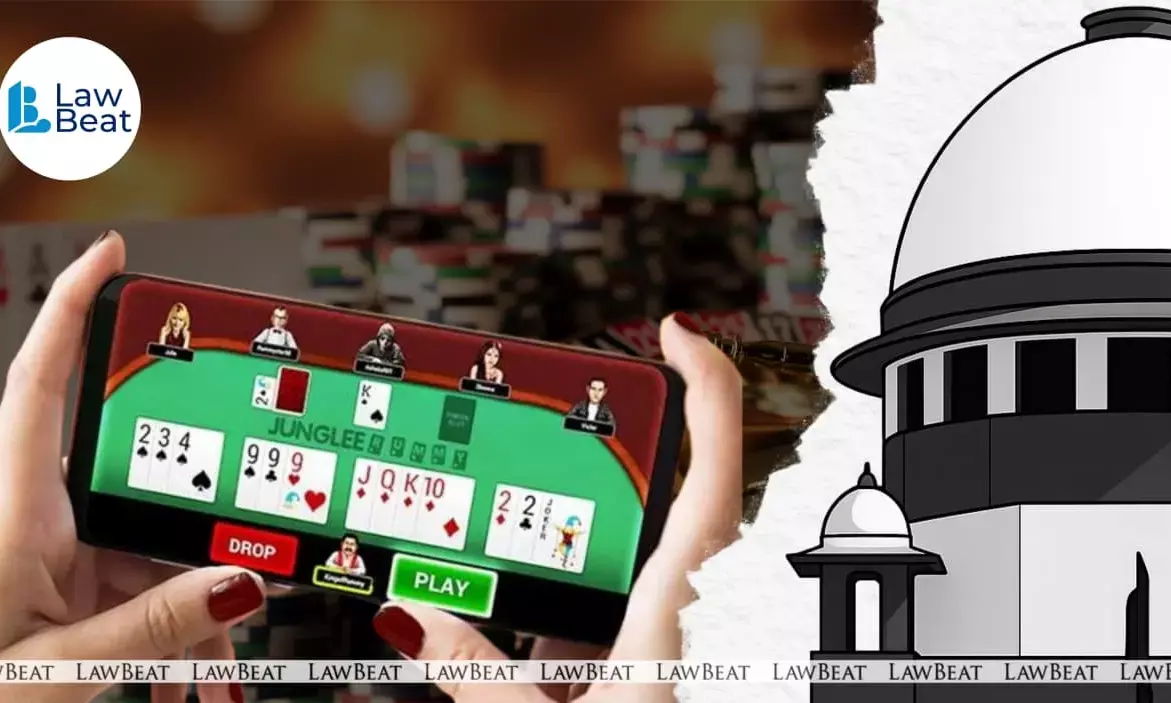Online Gaming Ecosystem Tied to Drugs, Hawala and Terror Financing: Centre Tells Supreme Court

Centre Flags Terror-Funding Links, Rs 20,000-Crore Annual Losses as It Defends Online Gaming Ban Before SC
The Union government has told the Supreme Court that unregulated real-money online gaming has evolved into a high-risk ecosystem linked to terror financing, money laundering and rising cases of suicides, estimating that Indians collectively lose nearly Rs 20,000 crore every year on such platforms.
The submission came in a detailed affidavit responding to constitutional challenges to the Promotion and Regulation of Online Gaming Act, 2025, filed by major industry players including Head Digital Works Pvt Ltd.
The Centre warned that the unchecked growth of online money gaming posed a “clear threat to national security, public order and financial sovereignty,” citing inputs from multiple ministries and enforcement agencies.
It said it was prepared to place “classified material” before the Court in a sealed cover to demonstrate demonstrable links between gaming networks and drug trafficking, human trafficking, оружие smuggling and other organised criminal activity.
According to the affidavit filed through AoR Sudarshan Lamba, suspicious transaction reports associated with gaming platforms have risen exponentially. From a single enquiry in 2019-20, the number surged to over 200 in 2023-24, involving nearly 7,000 bank accounts and outward remittances exceeding Rs 5,700 crore routed to jurisdictions with weak financial oversight.
The government alleged extensive use of mule accounts, crypto-layering, hawala channels and offshore shell entities to mask illicit flows.
The Centre also foregrounded the public health and social harms associated with real-money gaming. Data submitted by states recorded 32 suicides in Karnataka between January 2023 and July 2025, 20 cases in Telangana last year, and over 30 in Tamil Nadu in recent years. Nearly 45 crore individuals, the affidavit claimed, had been adversely impacted. “There can be no right to profession or trade at the cost of human lives,” it said, urging the Court to reject the industry’s reliance on Article 19(1)(g).
On legislative competence, the Centre argued that Entries 31 and 97 of List I place regulation of the digital space squarely within Parliament’s domain. It criticised state-level interventions as having created “regulatory chaos,” prompting the enactment of the 2025 legislation to establish uniform standards and close enforcement gaps arising from extra-territoriality and cross-border operations. The prohibition, it clarified, does not extend to e-sports or online games without real-money stakes.
In a separate affidavit before a bench of Justices JB Pardiwala and KV Viswanathan, which has consolidated challenges from multiple High Courts, the Centre reiterated that unregulated gaming platforms were aggressively marketed through celebrity endorsements and influencer campaigns, disproportionately targeting youth and vulnerable groups.
It contended that the new law was enacted in the public interest to curb the “widespread and harmful impact” of these platforms on individuals, families and the country.
Earlier, in November, the Court had directed the Union government to file a comprehensive response to the batch of petitions. On September 26, after a mentioning was made before the Court seeking urgent listing of the petitions challenging the Promotion and Regulation of Online Gaming Act, 2025. CJI BR Gavai had agreed to list the same. Recently, the Court had allowed the Centre's petition to transfer cases pending before the High Courts challenging the Promotion and Regulation of Online Gaming Act, 2025.
Karnataka High Court had deferred the hearing writ petitions challenging the newly enacted Online Gaming Act, 2025, noting that the Centre had moved to consolidate similar challenges before the Supreme Court. Head Digital Works, the parent company of A23, challenged the validity of the Act in the Karnataka High Court, arguing that it violated fundamental constitutional rights, including the freedom to conduct business under Article 19(1)(g), and infringed on the established legal distinction between games of skill and games of chance.
Union government had told the Delhi High Court that it is in the process of notifying the Promotion and Regulation of Online Gaming Act, 2025, and will also constitute a regulatory authority with supporting rules under the new law.
The Promotion and Regulation of Online Gaming Bill, 2025 was introduced in the Lok Sabha on August 20, cleared by both Houses of Parliament within two days through a voice vote, and received Presidential assent on August 22.
Case Title: Head Digital Works Private Limited v. Union of India
Counter- Affidavit By: Union of India
Counter Affidavit Dated: November 25, 2025
